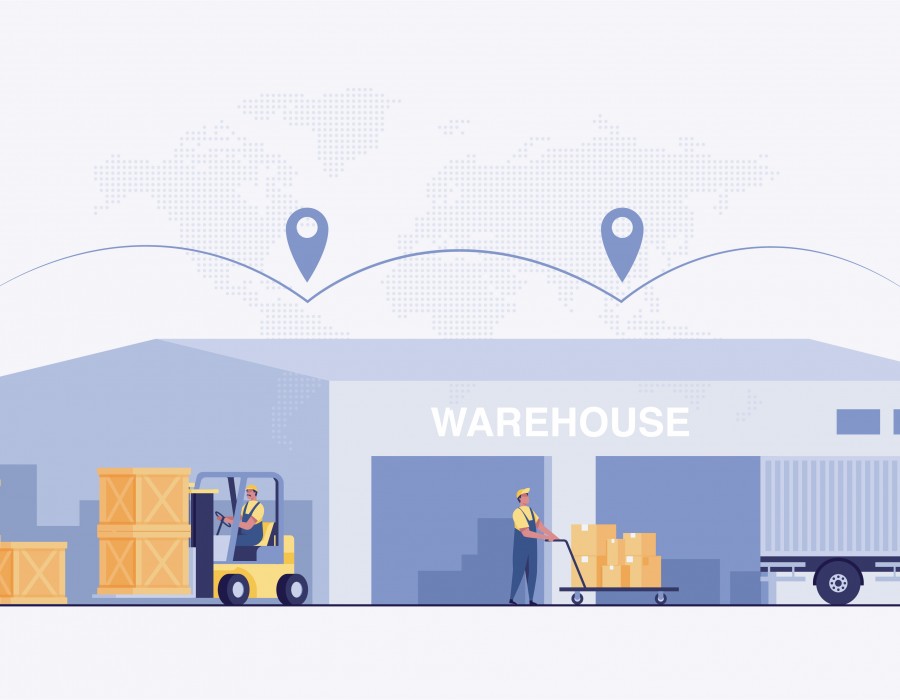The e-commerce industry has changed the way consumers shop and consume, providing an endless supply of convenience. As a result, companies are investing in larger warehouse locations to store their physical inventory and manage high demands from shoppers around the world. Warehouse rental is becoming increasingly popular with investors who are eager to capitalize on this dynamic market situation for long-term capital gains and ongoing income streams.
In the manufacturing, services, and primary sectors, the nation registered RM80.6 billion in total approved investments in 1Q2021, an increase of 95.6% from the same quarter previous year (RM41.2 billion). According to Knight Frank Malaysia, there will continue to be a significant need for warehousing and distribution facilities, which will support the logistics sector's continued interest.
In this blog post, we’ll how warehouses discuss an provide essential benefits for your e-commerce business—from reliable storm protection to simplified supply chain management!
1. What is warehouse rent and what factors go into the price of a warehouse lease
Securing warehouse for rent can be a critical part of growing a business. While warehouse rent can vary widely depending on the location, size, and amenities, it is important to understand what influences warehouse rent so that you can make an informed decision on the best warehouse for your needs. Factors that typically go into warehouse rental prices include features such as electricity/lighting, water storage capacity, loading docks, delivery access points and parking areas. Additional costs related to warehouse rent may include such items as maintenance fees, insurance premiums or taxes associated with the property. Knowing what factors are taken into account when pricing warehouse rent will help you find the best facility and get the most value from your rental agreement.
2. How much space do you need for your business and what are the options for smaller businesses
When you own a business, having the right amount of space to operate in is essential to getting things done. For larger businesses, warehouse for rent might be the best option. Having more space allows companies to have the room needed for their products and personnel. Smaller businesses face a different challenge when it comes to determining what space they need and how to get it. Fortunately, there are still plenty of options for individuals who don't need as much room. They can find office spaces for rent within smaller buildings or co-working spaces that offer flexibility and cost-effective prices. Open floor plans also provide opportunities for collaboration, networking, and events that could help grow the business in unexpected ways .
3. Negotiating a warehouse lease - tips to keep in mind
Negotiating a warehouse lease can be a long and arduous process, but there are certain strategies that can help you with the process. It is important to keep an open line of communication throughout the negotiations with both the landlord and real estate agent, as they will be able to share tips and advice that could potentially save money and time. Before signing a warehouse for rent, it is also essential to research any local governmental regulations or zoning restrictions, including any environmental considerations related to warehouse operations. In addition, understanding your company’s short- and long-term goals for warehouse usage is important so that you can negotiate terms that fit your needs. Having professional legal advice on hand can also help in making sure all applicable laws are taken into consideration before entering into a warehouse lease agreement.
4. Understanding common terms in a warehouse lease
When searching for warehouse for rent, it is important to understand the common terms used in warehouse leases. These terms cover a variety of topics, from the lease duration and damages to warehouse regulations and insurance requirements. Knowing these terms upfront can help you assess whether the warehouse conditions and rental rates are acceptable for your business needs. As such, taking time to research warehouse leases can make all the difference in making sure warehouse rental agreements are beneficial for both parties involved.
5. The pros and cons of owning vs renting a warehouse
When trying to decide between renting or purchasing a warehouse, there are pros and cons to consider. Owning a warehouse can become expensive when it comes to paying off the initial debt required to purchase it, as well as costly taxes, adding up over the years. On the other hand, warehouse owners benefit from financial freedom that comes with owning and have ultimate control over what they do with it. Renters have fewer upfront costs but usually don’t enjoy as much flexibility in terms of how they use their warehouse for rent. Further still, renters may also experience long term consequences on their budget if warehouse rental fees increase substantially at any stage in the future. Understanding these differences is key when making an informed decision when weighing whether or not warehouse ownership or rental is best for your needs.
In conclusion
Warehouse rent is an important cost to consider when operating a business. There are many factors to consider when deciding how much to spend on warehouse rent. Industrial Malaysia can help you find the right warehouse for your business needs. We have a wide selection of warehouses in various locations across Malaysia. Contact us today to learn more about our services.





Comments